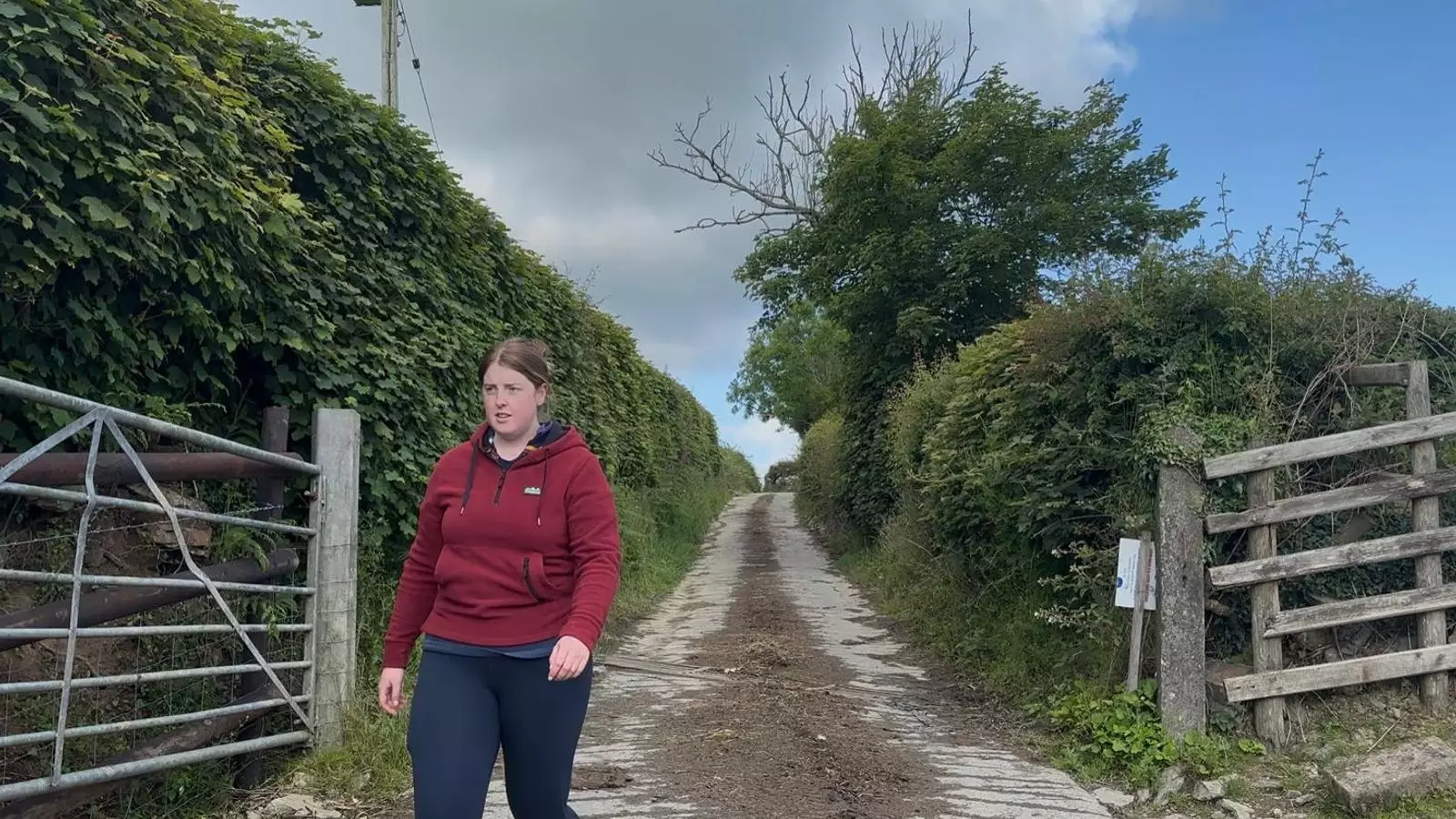Wales, known for its picturesque landscapes and pastoral beauty, is witnessing an alarming spike in rural crime that suggests a dark underbelly threatening its agricultural heart. According to a recent report from insurance provider NFU Mutual, rural crime in Wales has reached its highest point in over a decade, with an estimated cost of £2.8 million last year. This 18% increase marks Wales as an outlier in the UK, which, overall, has seen a reduction in rural crime. The figures reveal not only a troubling trend but also underscore a growing sense of vulnerability among the farming communities that are essential to Wales’ identity and economy.
The implications of this upswing in criminal activity cannot be understated. For many farmers, these crimes translate directly into debilitating financial and emotional burdens. The experience of Caryl Davies, a young farmer from Pembrokeshire, poignantly illustrates this. After her family’s quad bike was stolen—a vital tool for their operations—the emotional toll was immediate. Feeling “really unsafe at home” after such an intrusion highlights just how deeply rural crime affects the psyche of these communities.
The Financial Strain on Farmers
The intersection of rising crime rates and financial hardship cannot be ignored. Farmers like Caryl, who rely heavily on their equipment for everyday tasks, face not just the cost of theft but also the expense of bolstering security measures. To replace a stolen quad bike can cost nearly £10,000, a sum that is monumental for many who already operate on razor-thin margins. It’s remarkable that, as a nation committed to supporting its rural communities, we nonetheless drive farmers into a corner where they must choose between protecting their livelihoods or meeting other essential needs.
The challenges presented by rural crime extend beyond immediate financial implications; they erode the fabric of community trust and safety. When thieves target farms, they are not just stealing; they are stealing peace of mind and the sense of belonging that these rural spaces foster. As James Bourne, another farmer affected by persistent sheep thefts, emphasizes, the difficulties of current agricultural economics mean that recovering from such losses can feel insurmountable. His comments reflect a broader frustration within the agricultural community: an inherent struggle to maintain stability amid both economic pressures and criminal threats.
The Evolving Face of Crime
Andrew Chalk from NFU Mutual offers a chilling perspective: organized criminals are now strategically targeting the countryside, often hitting multiple farms in a single night. This trend not only highlights a shift in the dynamics of rural crime but also raises concerns about safety and the adequacy of police resources to respond effectively. The use of technology, including drones, indicates a level of sophistication that rural communities may not be prepared to confront. It underscores the urgent need for proactive measures rather than reactive responses.
The consciousness of a rural community hinges on the ability to secure and protect its resources. When organized crime syndicates become emboldened enough to systematically raid farms, the implications stretch beyond immediate theft. Trust in community structures and law enforcement can begin to erode, leading to a cycle of fear and disengagement.
The Role of Law Enforcement
While police forces in Wales are working to address these rising crime rates through new technologies and community engagement strategies, the effectiveness of these improvements remains to be seen. How are they expected to patrol vast areas with limited resources? The reality is that policing the countryside presents unique challenges, and it’s essential that agricultural communities feel supported by their local law enforcement agencies.
Temporary Chief Superintendent Jason White’s indication of an increase in resources for the rural crime team is a reassuring signal. However, farmers require more than just promises; they need actionable measures and visible results. The emergence of advanced DNA asset-marking kits can help deter thieves when farmers feel empowered to employ effective tools at their disposal.
Ultimately, tackling the issue of rural crime calls for a collaborative spirit between law enforcement and the farming community. Farmers need to feel a partnership with the police—trust is crucial, especially in a landscape where vulnerability is all too common.
Amidst these challenges, we must confront the uncomfortable truth: rural crime in Wales speaks to broader societal issues. The very essence of rural life is at stake, yet it seems to linger in the shadows of political discourse. It is high time we refuse to let the voices of those in rural communities fade away into obscurity. The rising tide of rural crime should serve as a catalyst for change—driving policy and community action that not only addresses crime but also fortifies the very heart of Welsh agriculture before it’s too late.


Leave a Reply